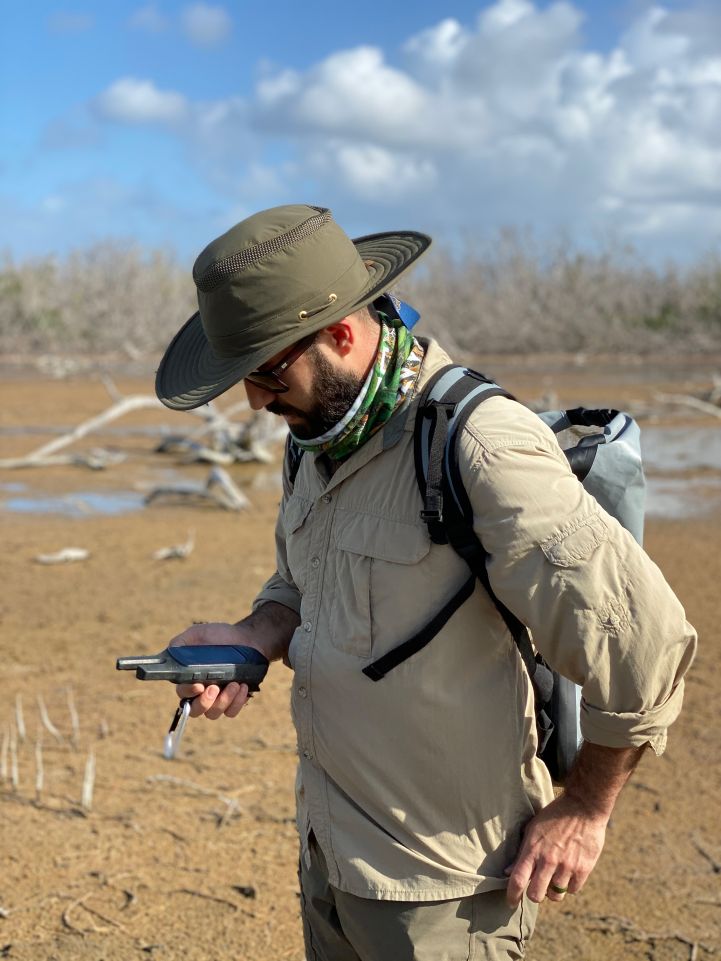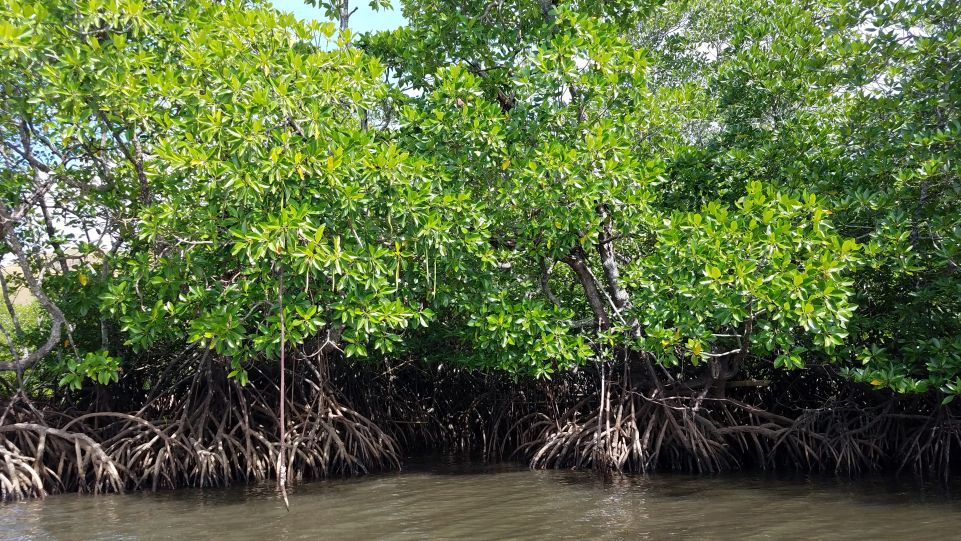ECU Department of Coastal Studies assistant professor David Lagomasino is part of a team of researchers from ECU and Florida International University (FIU) who have been awarded funding from the National Parks Service for a project to assess the resilience and recovery of mangrove forests in the Florida Everglades that were impacted by Hurricane Irma in 2017. Hurricanes are recurring, high-energy storm events that can impact mangrove forests through defoliation, tree snapping, and uprooting. These catastrophic events can lead to tree mortality and changes in tree composition and soil stability. Lagomasino and the project scientists have proposed research that would “test the extent and duration of hurricane impacts on species-specific responses, community and ecosystem trajectories, and resilience capacity” in the mangrove forests of the Everglades.
To accomplish the task at hand, researchers will examine historic and current events that impact individual sites within the Everglades. To begin, they will be studying the ecology and species competition and succession at these sites. Lagomasino and the research team are seeking to answer several questions about how coastal ecosystems respond to catastrophic storms. What has happened to the mangroves since the storm? Are there other plants that have emerged since the storm? What is growing and at what pace? What has died? The researchers will answer these questions first by collecting data on the ground. To better understand mangrove recovery (or lack thereof) and resilience at the sites, they will assess ecosystem characteristics such as forest structure, root biomass and production, and litterfall production, and they will also gather plant and soil chemistry profiles. The site-specific datasets provide important information about the different ecologically processes happening on the ground. In addition, the field data can be used to help validate observations collected from airplanes and from space. These two types of data, field and satellite observations, can then be combined to estimate regional models that capture the variability in the loss and recovery of mangrove biomass and carbon. Mangroves are a “Blue Carbon” ecosystem, meaning they are water-related habitat that can store an abundance of carbon in their soil, which is a crucial characteristic of climate change mitigation. Ultimately, the combination of field-based and remote sensing data will allow researchers to develop a holistic approach to monitoring the sensitivity and recovery trajectories of the mangrove forests into the future.

Lagomasino will be helping to collect data in the field, but his primary role is to combine field-based data with satellite observations in order to evaluate the current conditions of Everglades National Park and model the impacts of future storms under different scenarios. He will also oversee an FIU-funded graduate student during the summers at the Coastal Studies Institute.
For more information on The Lagomasino Lab please visit http://blog.ecu.edu/sites/cool-science/



 Based at the Coastal Studies Institute (CSI), the North Carolina Renewable Ocean Energy Program (NCROEP) advances inter-disciplinary marine energy solutions across UNC System partner colleges of engineering at NC State University, UNC Charlotte, and NC A&T University. Click on the links below for more information.
Based at the Coastal Studies Institute (CSI), the North Carolina Renewable Ocean Energy Program (NCROEP) advances inter-disciplinary marine energy solutions across UNC System partner colleges of engineering at NC State University, UNC Charlotte, and NC A&T University. Click on the links below for more information. ECU's Integrated Coastal Programs (ECU ICP) is a leader in coastal and marine research, education, and engagement. ECU ICP includes the Coastal Studies Institute, ECU's Department of Coastal Studies, and ECU Diving and Water Safety.
ECU's Integrated Coastal Programs (ECU ICP) is a leader in coastal and marine research, education, and engagement. ECU ICP includes the Coastal Studies Institute, ECU's Department of Coastal Studies, and ECU Diving and Water Safety. The ECU Outer Banks campus is home to the Coastal Studies Institute.
The ECU Outer Banks campus is home to the Coastal Studies Institute.

